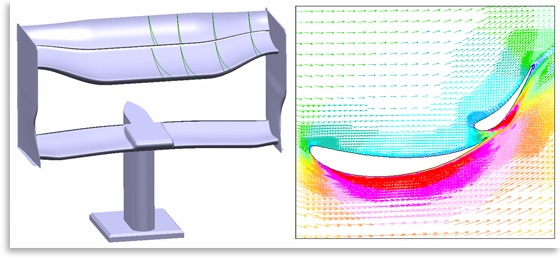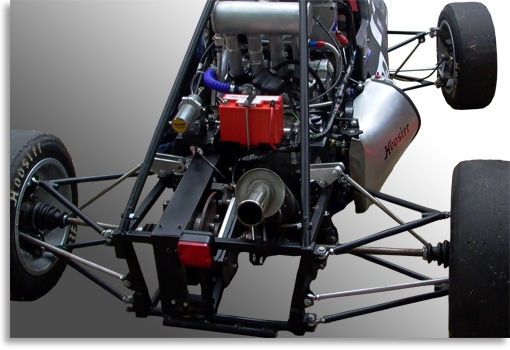About Me
Engineering Background
My undergraduate degree was in Aerospace Engineering. Computational Fluid Dynamics (CFD) became my specialist subject. CFD is where computers are used to predict flow of gases and liquids, such as the air-flow over the rear-wing of a Formula 1 car.

In 2005, I was part of the University of Manchester Formula Student team. This is where groups from universities design, make and race their own formula-style racing cars. This required a lot of team-work! We divided ourselves into our specialist areas; I was the aerodynamicist. I designed the body work using Computer Aided Design and CFD and then made the bodywork out of fibreglass. This was the University of Manchester's first entry.

Teaching Ethos
During my PGCE, there was emphasis on interactive learning. This proved to have a positive impact, but can be difficult to successfully implement in a large classroom. As a private tutor I have been able to interact directly with one or two students at a time, and tailor lessons and resources to their needs. After many years of tutoring, I have gained an appreciation for some of the problems that the education system faces:
- Some students are dismissed as disruptive, including several students who consequently came to me for help. But they are interesting, energetic and bright, and it was a pleasure tutoring them. It sounds like a cliché, but many just need inspiration and an opportunity to express themselves, which can be difficult in a traditional classroom environment.
- Even though I have come across some teachers who are part of the problem, the vast majority of the teaching community dedicate all of their time to make engaging lessons, and they really care for the students . Unfortunately many burn-out due to large class sizes, the pressure of Ofsted inspections and all of the bureaucracy that they have to deal with.
- Education is about learning how to think, to have an appreciation for knowledge and about being able to communicate with others. However, due to the pressures on young people, some students find it a painful experience.
Unfortunately, there is no quick-fix for these issues. But I want to be part of the solution, and am working hard to do so.
